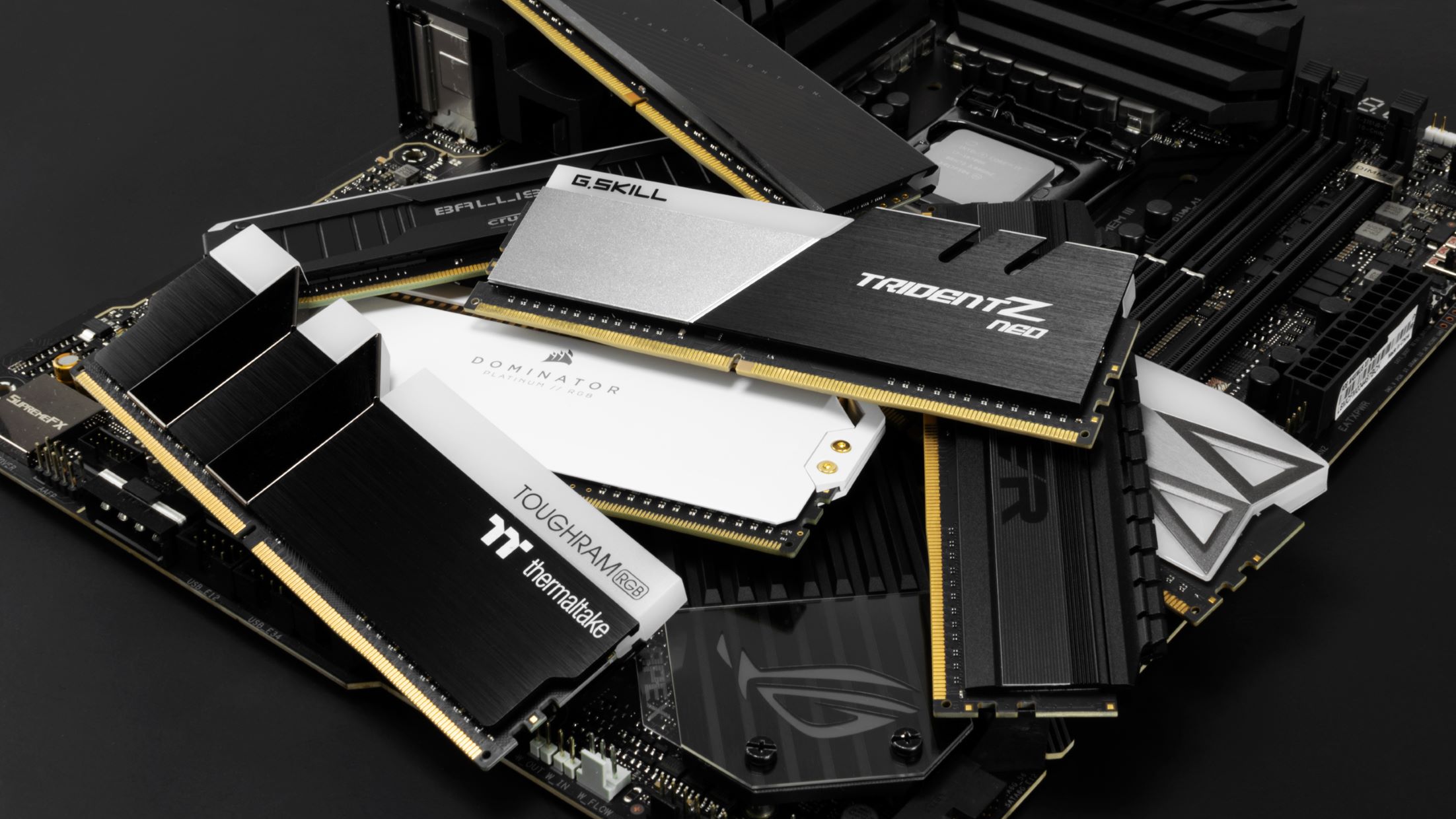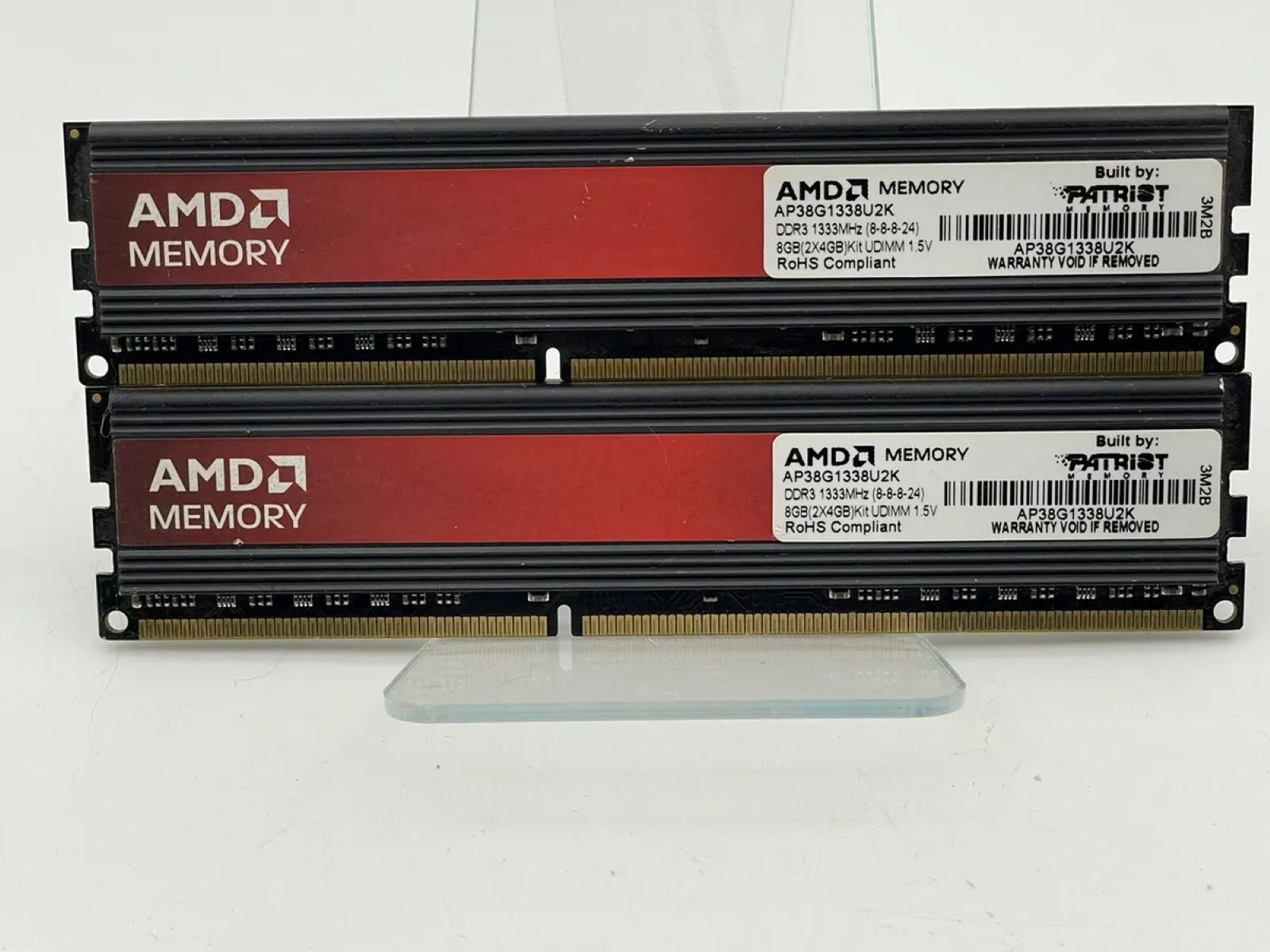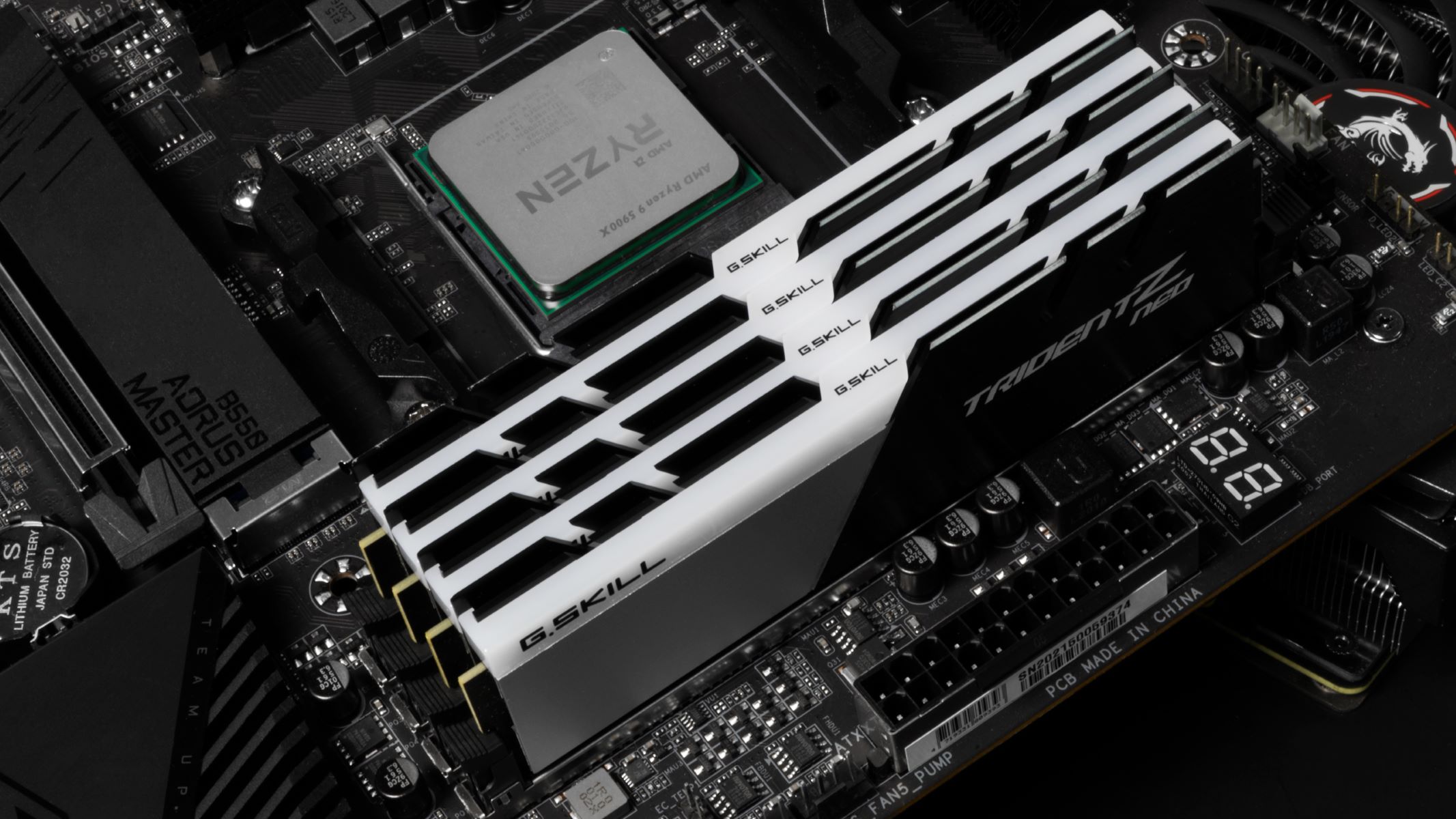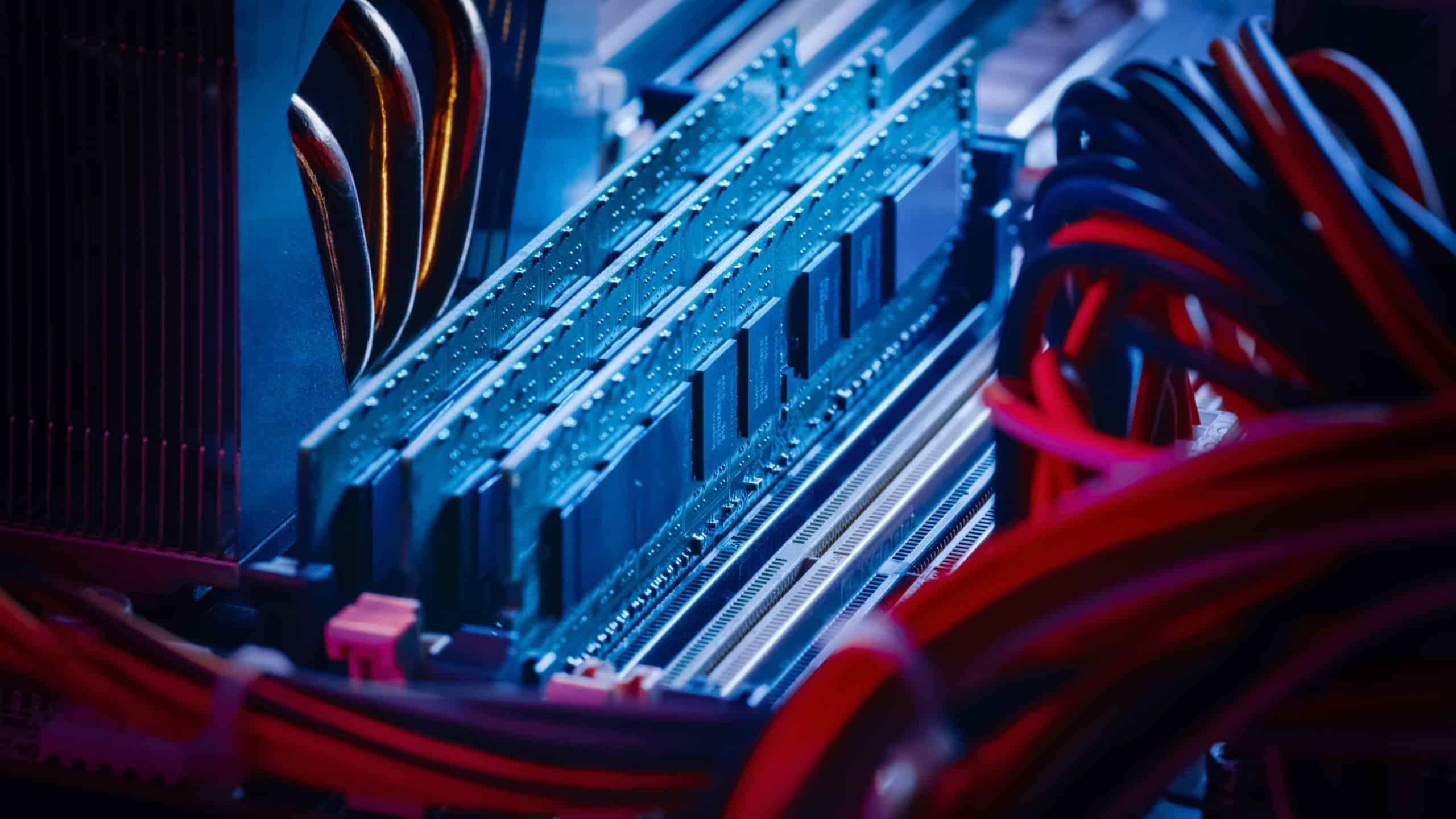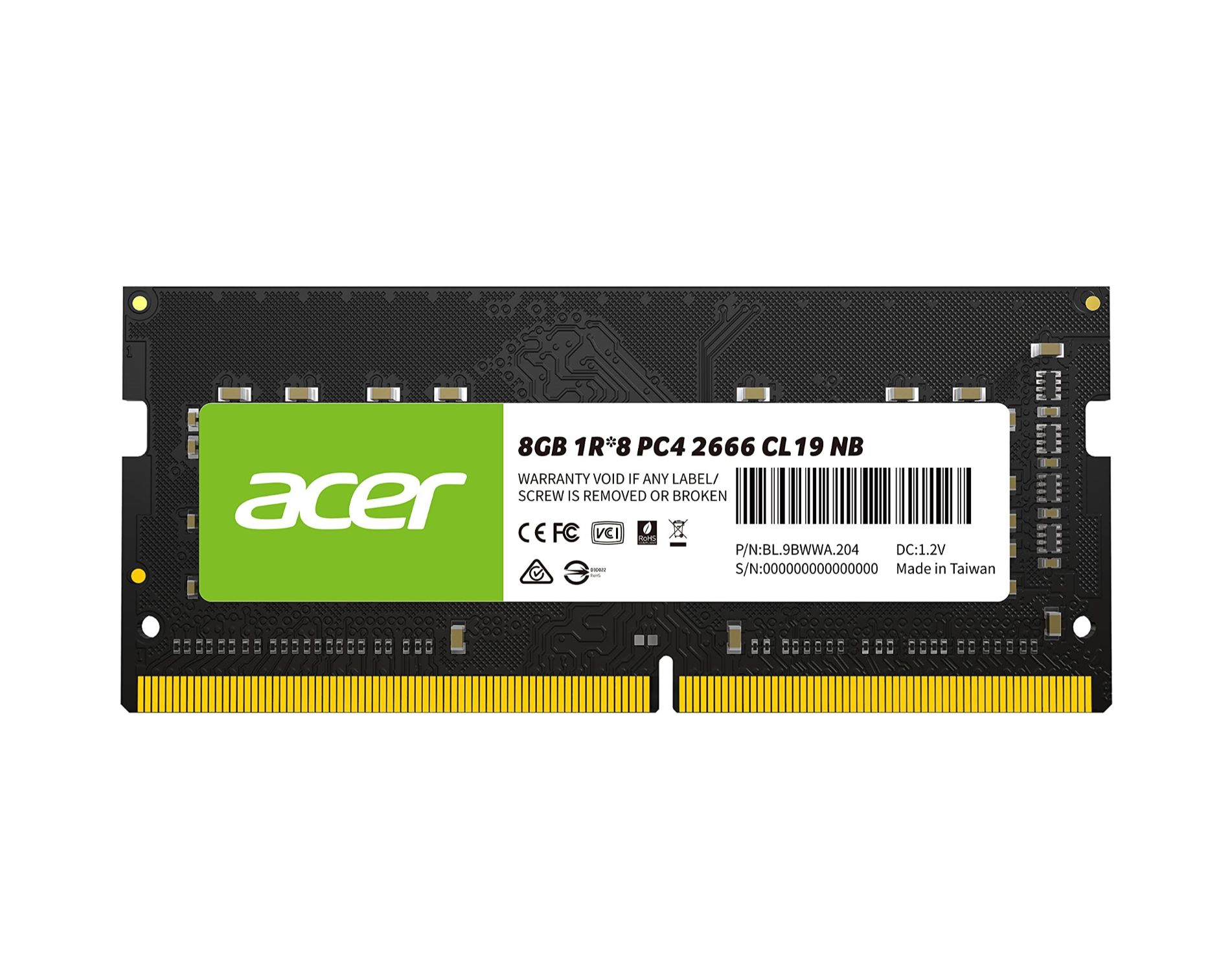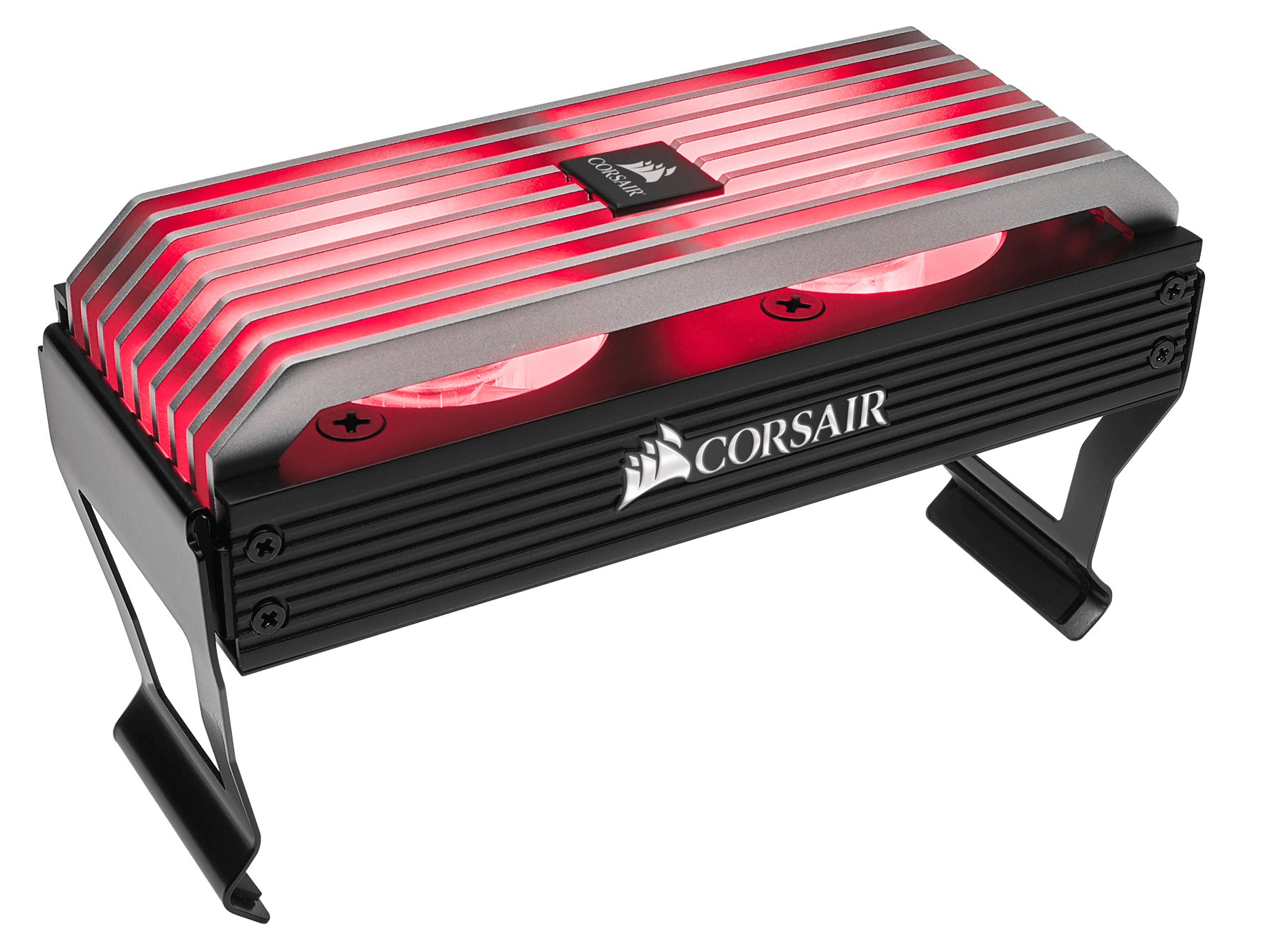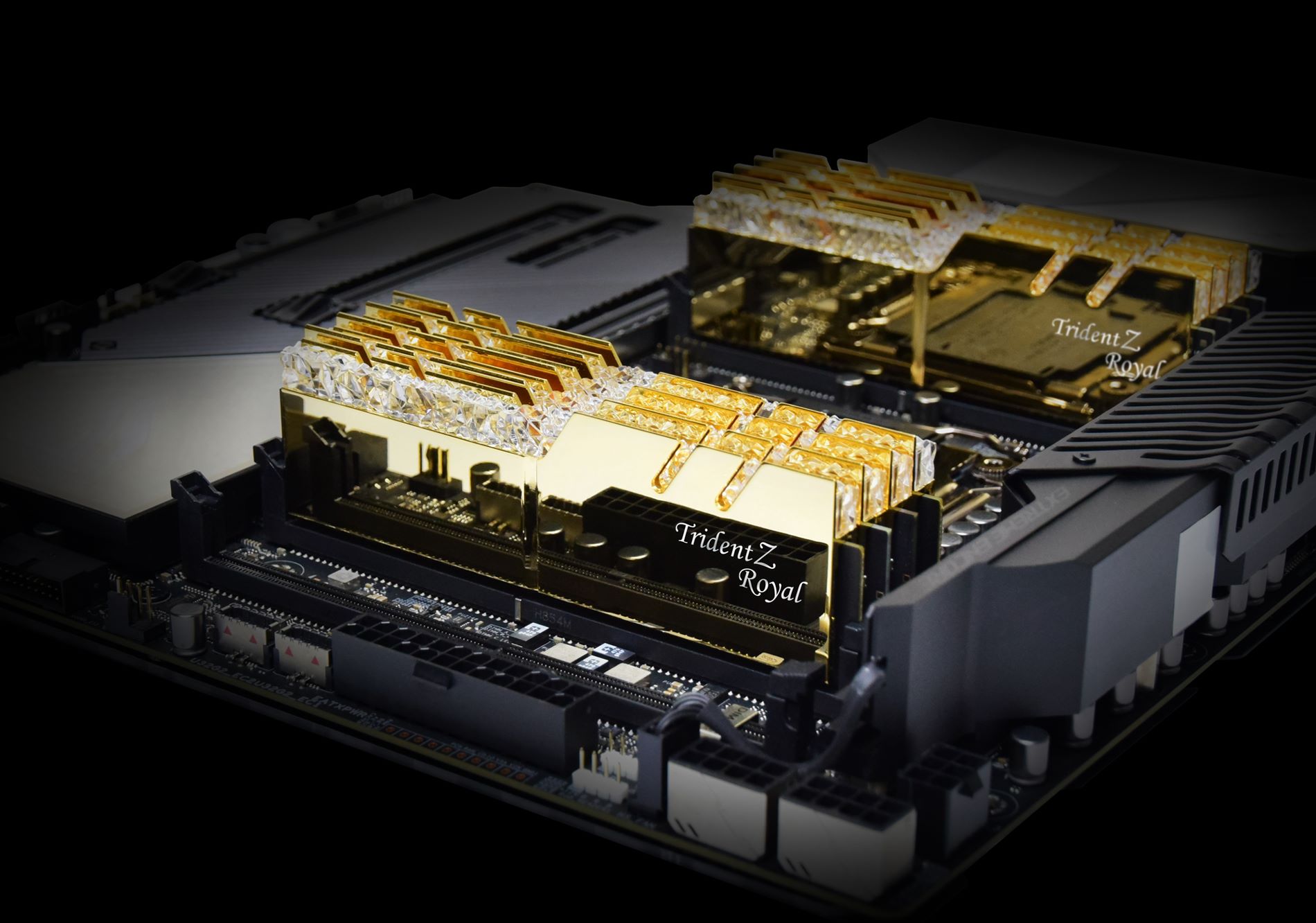Introduction
Welcome to the exciting world of gaming! Whether you’re an avid gamer or just getting started, you’ve probably heard the term “RAM” being tossed around quite a bit. But what exactly does RAM do in gaming, and why is it so important? In this article, we will delve into the fascinating realm of computer memory and explore the pivotal role that RAM plays in enhancing your gaming experience.
RAM, short for Random Access Memory, is a crucial component of any gaming computer. It acts as a temporary storage space for data that your computer uses actively. Think of it as a workbench where you can lay out all the necessary tools and materials needed for a task at hand. The more RAM you have, the more tools and resources your computer can access simultaneously. This directly translates to improved performance and seamless gaming sessions.
When you launch a game on your computer, it starts loading various assets, including textures, models, audio files, and code. These assets are stored in RAM to ensure quick access and retrieval by the system. Having an adequate amount of RAM allows for faster load times, smoother gameplay, more detailed graphics, and seamless multitasking capabilities, all of which greatly enhance your gaming experience.
In the following sections of this article, we will dive deeper into the specific ways in which RAM improves gaming performance, how much RAM you may need for gaming, and why it’s a crucial consideration when building or upgrading your gaming rig. So, let’s buckle up, grab our virtual swords and shields, and embark on this exciting journey to discover the magic of RAM in gaming!
Understanding RAM
Before we explore the role of RAM in gaming, it’s essential to have a fundamental understanding of what RAM is and how it works. RAM, or Random Access Memory, is a type of computer memory that stores data that is actively being used by your computer’s applications and processes. Unlike storage devices such as hard drives or solid-state drives (SSDs), which retain data even when the computer is powered off, RAM is volatile memory that gets erased once the computer is turned off or restarted.
RAM is designed to provide fast and temporary storage for data that the computer needs to access quickly. It allows for rapid reading and writing of information, which is crucial for the efficient operation of programs, including games. When you launch a game, it loads various assets into the RAM, including textures, models, audio files, and code, so they are readily available for the system to utilize.
RAM operates at high speeds, allowing for quick data transfers between the processor and other components. The amount of RAM you have affects how many operations can be performed simultaneously and how quickly data can be accessed. If your computer doesn’t have enough RAM, it may struggle to efficiently handle the demands of modern games, leading to laggy gameplay, slow loading times, and overall performance issues.
RAM capacity is measured in gigabytes (GB). The more RAM you have, the more data your computer can store and access without constantly retrieving it from the slower storage devices, such as hard drives or SSDs. It’s important to note that RAM is different from storage capacity, which refers to the amount of data you can store long-term on your computer.
In summary, RAM is a crucial component of your computer’s memory hierarchy. It serves as a high-speed temporary storage space for actively used data, allowing for quick access and retrieval by the system. Understanding the role of RAM sets the stage for exploring its significance in gaming, as we will dive into in the following sections.
Role of RAM in Gaming
RAM plays a vital role in gaming, and its impact on your gaming experience cannot be overstated. Here are some key ways in which RAM influences your gameplay:
- Faster Load Times: When you launch a game, it needs to load various assets into memory before you can start playing. These assets include textures, character models, level maps, and audio files. With sufficient RAM, these assets can be loaded quickly, resulting in shorter load times and more immediate immersion into the game world. On the other hand, if your system has limited RAM, the game may take longer to load, causing frustration and interrupting the gaming flow.
- Smoother Gameplay: One of the most noticeable benefits of having ample RAM is the ability to run games smoothly without annoying stutters or frame rate drops. RAM helps in storing and quickly accessing the game’s code and assets needed to render each frame. This allows your computer to efficiently process and deliver a consistent flow of frames, resulting in a smoother gaming experience. Inadequate RAM can lead to lag, choppy animations, and overall poor performance, hindering your ability to fully enjoy the game.
- More Detailed Graphics: RAM also plays a role in the quality of graphics in games. Higher resolution textures and complex models require more memory to store. With sufficient RAM, your system can hold and access these assets seamlessly, allowing for more detailed and visually stunning graphics. Limited RAM may force the game to downscale textures or reduce the level of detail, resulting in a less immersive visual experience.
- Multitasking: Many gamers enjoy multitasking while playing, such as streaming gameplay, running voice chat programs, or browsing the web. Having adequate RAM enables your computer to handle these additional tasks efficiently without impacting game performance. With more RAM, you can switch between applications smoothly, ensuring a seamless gaming experience while enjoying other activities simultaneously.
Overall, RAM acts as a crucial bridge between your processing power and the game’s requirements. It allows for quick access to game assets, smoother performance, improved graphics, and the ability to multitask without sacrificing gameplay quality. The next section will delve into how much RAM you may need for gaming based on your specific requirements and preferences.
Faster Load Times
One of the significant advantages of having ample RAM in gaming is faster load times. When you launch a game, it needs to load various assets, including textures, models, animations, and audio files, into the computer’s memory before you can start playing. The speed at which these assets are loaded into RAM can significantly impact your gaming experience.
With sufficient RAM, the game assets can be loaded quickly, resulting in shorter load times and a more seamless transition into the game world. The game can access the necessary data from RAM almost instantly, allowing you to jump right into the action without frustrating delays. Whether you’re exploring vast open worlds or engaging in intense multiplayer battles, faster load times ensure that you spend less time waiting and more time playing.
On the other hand, if your system has limited RAM, the game’s loading process may become a bottleneck. The computer will need to retrieve data from slower storage devices, such as hard drives or SSDs, instead of accessing it directly from RAM. This can significantly slow down the load times, leading to frustration and interrupting the gaming flow.
It’s important to note that faster load times not only enhance convenience but also result in a more immersive gaming experience. When the game assets are readily available in RAM, the game can render scenes more quickly and seamlessly, minimizing pop-in textures or objects. This eliminates distractions and maintains the immersive atmosphere, allowing you to fully immerse yourself in the virtual world.
In addition to the initial load times, having sufficient RAM can also improve loading times within the game itself. For example, when transitioning between different areas or levels, having enough RAM allows the game to store and access the required assets quickly, ensuring smooth transitions without noticeable delays or hiccups.
Overall, faster load times provided by ample RAM contribute to a more streamlined and enjoyable gaming experience. As you consider upgrading your computer or building a gaming rig, make sure to prioritize having enough RAM to take full advantage of the benefits it offers in terms of reduced load times.
Smoother Gameplay
Having sufficient RAM is essential for achieving smoother gameplay in your favorite games. Smooth gameplay is characterized by consistent frame rates, minimal lag, and responsive controls, all of which contribute to an immersive and enjoyable gaming experience.
RAM plays a crucial role in storing and quickly accessing the game’s code, assets, and instructions required to render each frame. When you press a key or move your mouse, the input is processed by the game and translated into on-screen actions. With ample RAM, these inputs are processed swiftly, resulting in immediate and responsive gameplay.
One of the primary factors influencing smooth gameplay is a consistent frame rate. Frame rate refers to the number of frames displayed per second (fps). Higher frame rates result in smoother and more fluid animations. RAM allows the computer to store and process the necessary game assets and calculations fast enough to maintain a high frame rate. With sufficient RAM, your system can keep up with the demanding requirements of modern games, allowing for a smooth and seamless gaming experience.
Inadequate RAM, on the other hand, can lead to noticeable frame rate drops, causing choppy animations, lag, and input delay. When your system doesn’t have enough RAM to store and process all the required assets at once, it resorts to constantly retrieving data from slower storage devices, such as hard drives or SSDs. This can introduce delays and interruptions in the game, negatively impacting the smoothness of gameplay.
Insufficient RAM can also result in longer loading times between different game areas or levels. When transitioning from one location to another, games often need to load new assets and unload previous ones. With limited RAM, the game may struggle to efficiently manage these transitions, causing hiccups, freezes, or stuttering as it continuously loads and unloads assets. This can disrupt the flow of gameplay and hinder the overall experience.
Furthermore, having ample RAM allows the operating system and background processes to run smoothly while gaming. Background tasks, such as antivirus scans, software updates, or media playback, can consume precious system resources. With sufficient RAM, your computer can handle these tasks without impacting game performance. On the other hand, insufficient RAM may cause these background processes to compete with the game for resources, resulting in a slowdown and less smooth gameplay.
In summary, having enough RAM is crucial for achieving smooth and fluid gameplay. It ensures a consistent frame rate, minimal lag, responsive controls, and uninterrupted transitions between game areas. By investing in sufficient RAM, you can optimize your gaming experience and fully immerse yourself in the virtual worlds of your favorite games.
More Detailed Graphics
RAM plays a significant role in determining the level of detail and visual quality that your computer can deliver in gaming. Higher-resolution textures, complex character models, realistic lighting effects, and detailed environments all require a significant amount of memory to store and process. With ample RAM, your system can accommodate these demanding visual assets and provide a more visually stunning gaming experience.
When a game is running, it continuously accesses and utilizes graphic assets to render the on-screen visuals. These assets include textures, which dictate the appearance of surfaces, objects, and characters, as well as shaders, which determine how light interacts with the scene. With enough RAM, these assets can be stored and readily accessed, allowing for smooth rendering and high-quality graphics.
Having sufficient RAM enables the game to load and utilize highly detailed textures. Textures with higher resolutions contain more intricate details and sharper imagery, resulting in a more realistic and immersive environment. With ample memory, your system can store these high-resolution textures, preventing the game from downscaling or compromising on the level of detail to fit within limited memory resources.
Complex character models are another area where RAM plays a significant role. Character models can feature intricate designs, detailed textures, and numerous animations. Adequate RAM ensures that the system can handle the storage and processing of these models, allowing for smooth character animations and precise rendering of facial expressions, clothing, and other visual elements.
Realistic lighting effects are also heavily dependent on RAM. Modern games utilize advanced lighting techniques such as global illumination, dynamic shadows, and ambient occlusion to create a more lifelike visual experience. These lighting effects require large amounts of memory to calculate and render accurately. Insufficient RAM may hinder the game’s ability to deliver these effects, resulting in a less immersive and visually stunning environment.
Furthermore, having enough RAM can contribute to enhanced draw distances in games. Draw distance refers to the distance at which objects and scenery are visible on the screen. With sufficient memory, the game can load and maintain assets for a larger draw distance, allowing for expansive and detailed environments. This means that you can enjoy breathtaking vistas, sprawling landscapes, and realistic cityscapes without sacrificing performance.
In summary, having ample RAM allows your system to store and process highly detailed textures, complex character models, advanced lighting effects, and expansive environments. This results in more visually stunning and immersive gaming experiences. When building or upgrading your gaming rig, consider investing in sufficient RAM to unlock the full potential of your games and indulge in visually breathtaking worlds.
Multitasking
Gaming often goes hand in hand with multitasking, as many gamers enjoy running additional software or performing tasks simultaneously while playing. Whether it’s streaming gameplay, running voice chat programs, browsing the web, or editing videos, having ample RAM is crucial for smooth multitasking without sacrificing game performance.
RAM allows your computer to store and access data from multiple applications and processes simultaneously. With enough memory, your computer can efficiently handle the demands of both the game and the other applications running in the background. This means you can stream your gameplay to platforms like Twitch or YouTube without experiencing significant drops in frame rate or lag.
Running voice chat programs while gaming is also common among gamers, especially for cooperative or competitive multiplayer games. Voice chat applications, such as Discord or TeamSpeak, require memory to store voice data and process real-time communication. With sufficient RAM, your computer can handle these voice chat programs without impacting game performance, allowing for seamless communication with your teammates or opponents.
Browsing the web is another task that many gamers like to do while gaming, whether it’s looking up game guides, watching videos, or chatting with friends. Web browsers can consume a significant amount of memory, especially when multiple tabs are open. Having ample RAM ensures that your computer can handle the memory requirements of both the game and the browser, preventing slowdowns or crashes.
In addition to streaming, voice chat, and browsing, multitasking can include various other activities. You might want to have music playing in the background, run software for video editing or screen recording, or even have other games running on different monitors. With enough RAM, your system can handle these tasks smoothly, allowing you to enjoy a truly immersive and multitasking-friendly gaming experience.
Insufficient RAM can lead to performance issues when multitasking while gaming. When there isn’t enough memory to accommodate both the game and the additional applications or processes, your computer may struggle to allocate resources effectively. This can result in slowdowns, increased load times, or even crashes, detracting from the overall gaming experience.
In summary, having ample RAM is crucial for multitasking while gaming. Whether you’re streaming gameplay, running voice chat programs, browsing the web, or performing other tasks, having enough memory allows your computer to handle these activities without compromising game performance. Consider investing in sufficient RAM to ensure a seamless and enjoyable multitasking experience while gaming.
How Much RAM Do You Need for Gaming?
Determining how much RAM you need for gaming depends on several factors, including the type of games you play, the system requirements of those games, and your overall multitasking needs. While the specific amount of RAM can vary from person to person, here are some general guidelines to consider:
Minimum Requirements: Most modern games specify minimum system requirements, including the minimum amount of RAM needed to run the game. While you can technically run a game with the minimum required RAM, it’s often recommended to have more than the minimum for a smoother and more enjoyable gaming experience. Additionally, keep in mind that as newer games are released, their system requirements may increase, so aim for a bit more than the absolute minimum if possible.
8 GB: As a general rule of thumb, 8 GB of RAM is considered the minimum for gaming in most cases. This amount of RAM allows you to run most modern games without significant performance issues. It provides enough space for the game to load assets, handle calculations, and run smoothly. However, keep in mind that if you plan on multitasking while gaming or playing more demanding game titles, you may benefit from having more RAM.
16 GB: Having 16 GB of RAM is becoming increasingly common and is often recommended for gaming. This additional memory allows for better multitasking capabilities, such as running voice chat programs, streaming gameplay, or browsing the web while gaming. It also provides a buffer for more demanding games that require higher amounts of RAM. Overall, 16 GB of RAM provides a balance between performance, multitasking capabilities, and future-proofing your gaming system.
32 GB or More: If you’re a power user or an enthusiast gamer who wants the best performance and the ability to handle intensive multitasking, consider investing in 32 GB or more of RAM. This amount of memory caters to professional-grade tasks, content creation, and running resource-intensive programs alongside gaming. While it may not offer significant benefits for the average gamer, it can provide peace of mind and future-proof your system.
It’s important to note that the amount of RAM you need also depends on the operating system you’re using. For example, gaming on a 64-bit operating system allows you to utilize more than 4 GB of RAM, unlike a 32-bit system that limits RAM usage. Additionally, different games have varying memory requirements, so it’s essential to check the recommended system specifications for the games you plan to play.
In summary, for most gamers, 8 GB to 16 GB of RAM is generally sufficient for running modern games. However, if you tend to multitask while gaming or play demanding titles, consider investing in 16 GB or more to ensure optimal performance and multitasking capabilities. Keep in mind that individual preferences and specific game requirements may vary, so it’s always wise to check the recommended system specifications for the games you enjoy playing.
Conclusion
RAM plays a critical role in gaming, impacting various aspects of your gaming experience. With sufficient RAM, you can enjoy faster load times, smoother gameplay, more detailed graphics, and seamless multitasking capabilities. It allows your computer to quickly access and store the necessary assets, resulting in improved performance and enhanced visual quality.
When it comes to determining how much RAM you need for gaming, it’s essential to consider factors such as the type of games you play, their system requirements, and your multitasking needs. Aim for a minimum of 8 GB of RAM, which can handle most modern games, but consider upgrading to 16 GB or more for better multitasking capabilities and future-proofing your system.
Remember, having ample RAM is just one aspect of building a powerful gaming rig. It’s essential to consider other components, such as the processor, graphics card, and storage devices, to ensure a well-balanced and high-performance system.
So, whether you’re exploring vast open worlds, battling fierce enemies, or immersing yourself in virtual adventures, having sufficient RAM will elevate your gaming experience to new heights. Upgrade your computer’s memory, unleash the full potential of your games, and embark on countless unforgettable gaming journeys!









